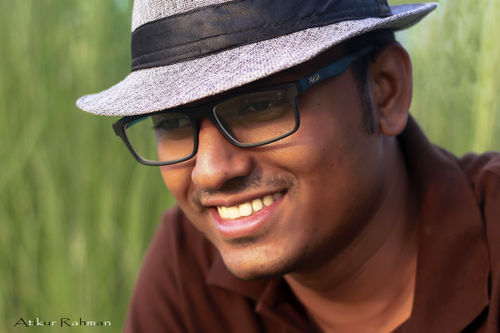User:Sawan Shariar

Indroduction
SAWAN SHARIAR | MS IN ICT, MSS IN ECONOMICS
Sawan has extensive GIS & Data Acquisition experience of over 7 years. He has worked & supported Field Supervision for GIS & Data Acquisition projects from the American Red Cross, World Bank, WaterAid, UNICEF, Deltares NL, One Concern US, and Humanitarian OpenStreetMap Team (HOT). Sawan had also supported Geospatial data-centric research initiatives from Warwick University-UK, and Independent University-Bangladesh. He supported NIHR's global research project on Health Service Accessibility for Slum Dwellers, conducted by the Warwick University CIM team, where he supported the HH-level Mapping in Korail Slum, creating the first-ever detailed & complete map of the slum area. Most recently, he supported a study project under Mapgive (a U.S. Department of State initiative) and the American Association of Geographers on exploring the secondary impact of COVID-19 in Bangladesh, which intensely collaborated with Colorado State University, Michigan State University, and Harvard University. Besides these, He was the Senior Operation Manager at the Mapping Dept. for Pathao, the leading ride-sharing platform in Bangladesh & Nepal, where he supervised Field Data Acquisition in multiple major cities. He has been an active member of the coordination team of the OpenStreetMap community in Bangladesh, remotely supporting regional & global initiatives like HOTOSM, MissingMaps, and UNMappers through mapping and data validation. He is currently working as a Youth Engagement & Operations Manager for Bangladesh Open Innovation Lab (BOIL). He is currently also a Voting Member, Data Validator for the HOT Validation Pool and a Community WG member for the Humanitarian OpenStreetMap Team (HOT). He is also a Regional Ambassador of Global Tech Support for YouthMappers, a global initiative from Texas Tech, West Virginia, Washington University and the University of Arizona, supported by USAID. He is a former Youth Chief of the Red Crescent Youth, Dhaka College Unit for BDRCS.
His complete mapper profile can be found at: Sawan Shariar
His OSM Profile can be found at: Sawan Shariar
Contacts
- E-mail: sshariar1991@gmail.com

- Facebook:
 sshariar1991
sshariar1991 - Twitter:
 @sshariar1991
@sshariar1991
- Instagram:
 cloud.number9
cloud.number9 - LinkedIn:
 sawan-shariar-006855ba/
sawan-shariar-006855ba/
Awards/Recognitions
| 2024 | Community Organizer of the Year Asia Pacific 2024, Recognized by HOTOSM at SotM 2024 Nairobi Kenya | 2021 | Regional Ambassador, YouthMappers 2021-22 |
| 2024 | Mentor, YouthMappers Leadership Fellowship 2024, Bangkok, Thailand | 2020 | Voting Member, Humanitarian OpenStreetMap Team |
| 2024 | Best YouthMappers Blog 2024 | 2020 | Regional Ambassador, YouthMappers 2020-21 |
| 2023 | Speaker, State of the Map Asia 2023, Bangkok, Thailand | 2020 | Best YouthMappers Blog 2020 |
| 2023 | State of the Map Asia Community Champion Award 2023 | 2020 | Intern, HOT Data Quality Internship 2020 |
| 2023 | Regional Ambassador, YouthMappers 2023-24 | 2019 | Fellow Speaker, State of the Map 2019, Heidelburg, Germany |
| 2022 | Best YouthMappers Blog 2022 | 2019 | Fellow Speaker, HOT Summit 2019, Heidelberg, Germany |
| 2022 | Speaker, State of the Map Asia 2022 | 2019 | Winner, Global YouthMappers Challenge 2019 |
| 2022 | Participant, FOSS4G 2022, Firenze, Italy | 2018 | Speaker, State of the Map Asia 2018, Bengaluru, India |
| 2022 | Visiting Fellow, State of the Map 2022, Firenze, Italy | 2016 | Founder & President, YouthMappers DhakaCollege |
Blog/Dairy/Publication
YouthMappers
Dairy at OpenStreetMap
Conference Organizer
Contribution on Community Development
Contributions are structured according to the years. Please visit the link of years to read the entire contributions.
>>> YouthMappers Activities by Sawan Shariar
>>> Sawan Shariar Activity/2024
>>> Sawan Shariar Activity/2023
>>> Sawan Shariar Activity/2022
Nurturing Local Team: Create YouthMappers Chapters
Sawan Shariar has selected YouthMappers as a Regional Ambassador for the cohort of 2020-2021, 2021-2022, and 2023-2024. During this time, he created YouthMappers chapters in Bangladesh, Sri Lanka and India.
| Total New Established | Total Revived | Total Outreached (Outreach+Est+Revive) |
|---|---|---|
| 13 | 05 | 30 |
| Year | Category | Country | University | University Logo |
|---|---|---|---|---|
| 2024 | Outreached | Bangladesh | Bangladesh University of Engineering and Technology |
 |
| 2024 | Outreached | Pakistan | Lahore College for Women University |
 |
| 2024 | Outreached | Bangladesh | Pabna University of Science and Technology |
 |
| 2024 | Outreached | Bangladesh | Islamic University of Technology |
|
| 2024 | Outreached | Bangladesh | University of Asia Pacific | . |
| 2024 | Outreached | Bangladesh | Cox's Bazar Govt. College | . |
| 2024 | Outreached | Bangladesh | Brac University | . |
| 2024 | Outreached | Bangladesh | Islamic University Bangladesh | . |
| 2024 | Outreached | Bangladesh | Cox's Bazar City College | . |
| 2024 | Outreached | Bangladesh | University of Global Village | . |
| 2024 | Outreached | Bangladesh | Bangladesh Agricultural University | . |
| 0000 | Outreached | Bangladesh | University of Asia Pacific | . |






















